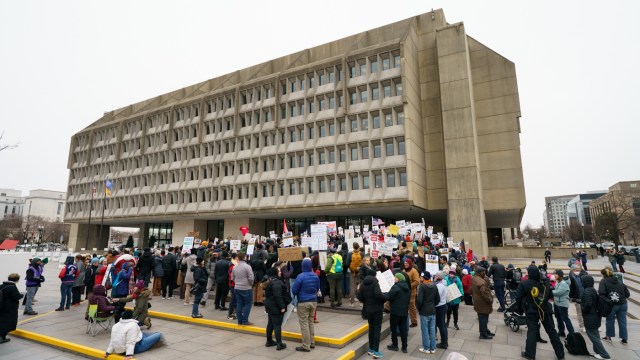Health Funding Battle: Blue States Launch Legal Assault Against Massive Budget Cuts

In a bold legal challenge, Democratic attorneys general from 23 states and Washington, D.C. are set to present their case in court on Thursday, fighting to block the Trump administration's controversial plan to slash over $11 billion in critical public health funding.
The lawsuit represents a significant pushback against federal budget cuts that could potentially devastate healthcare services across multiple states. By uniting in this legal action, these Democratic state leaders aim to protect essential healthcare resources and prevent what they view as harmful reductions to vital public health programs.
The hearing marks a crucial moment in the ongoing battle between state governments and federal policy, highlighting the deep divisions over healthcare funding and priorities. As the legal proceedings unfold, the potential impact on millions of Americans hangs in the balance, with healthcare access and community wellness at stake.
